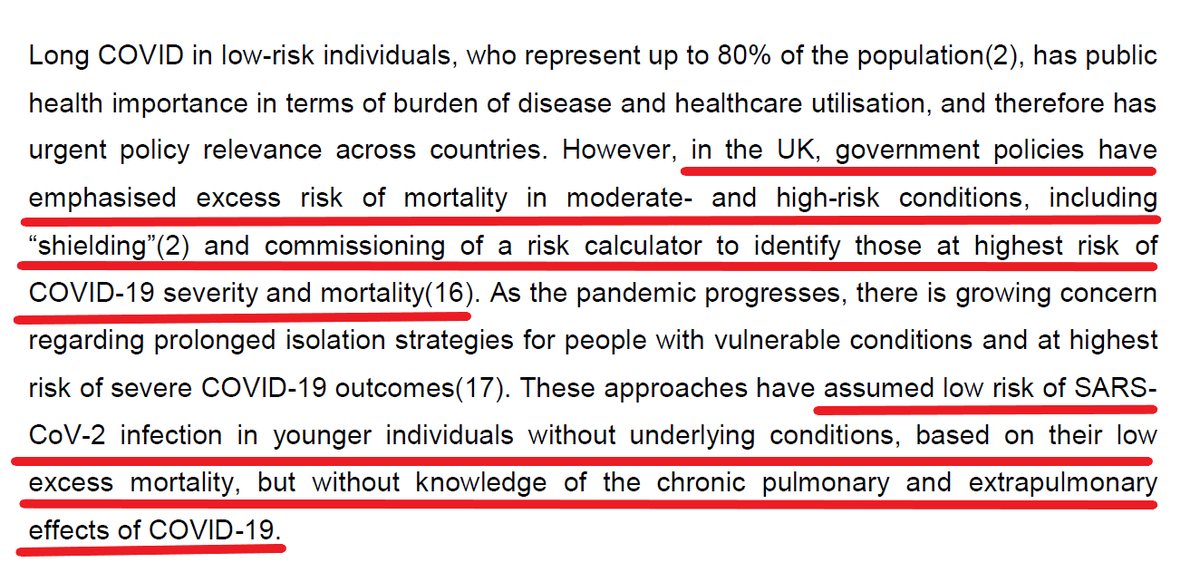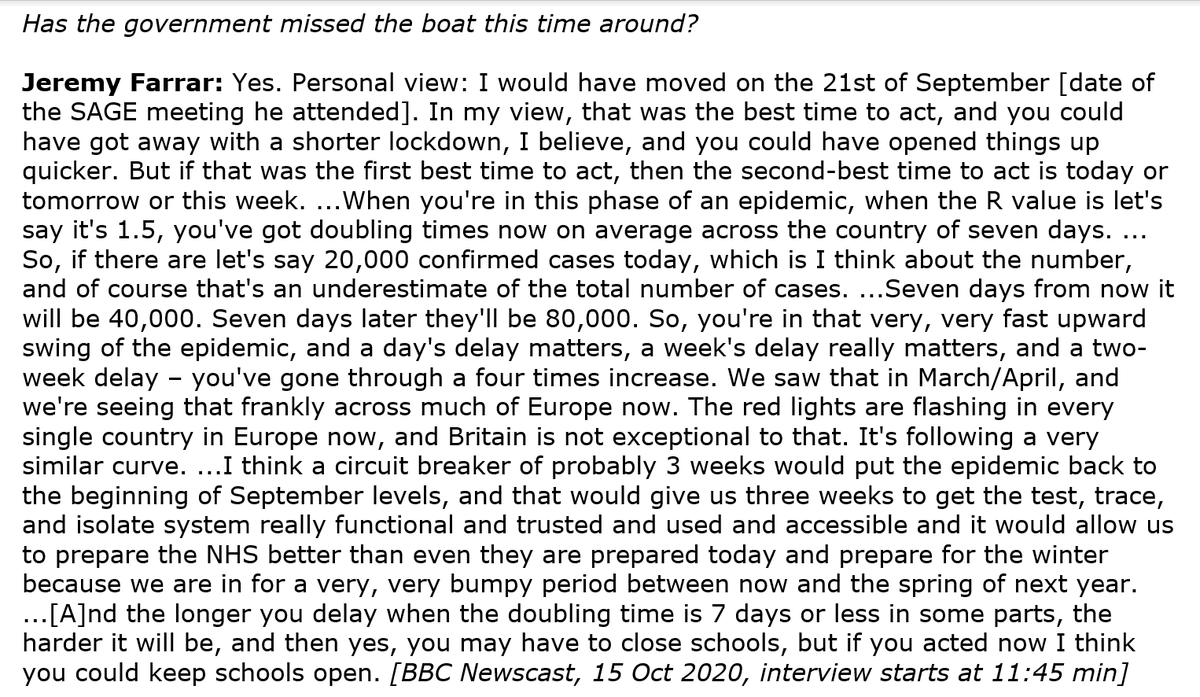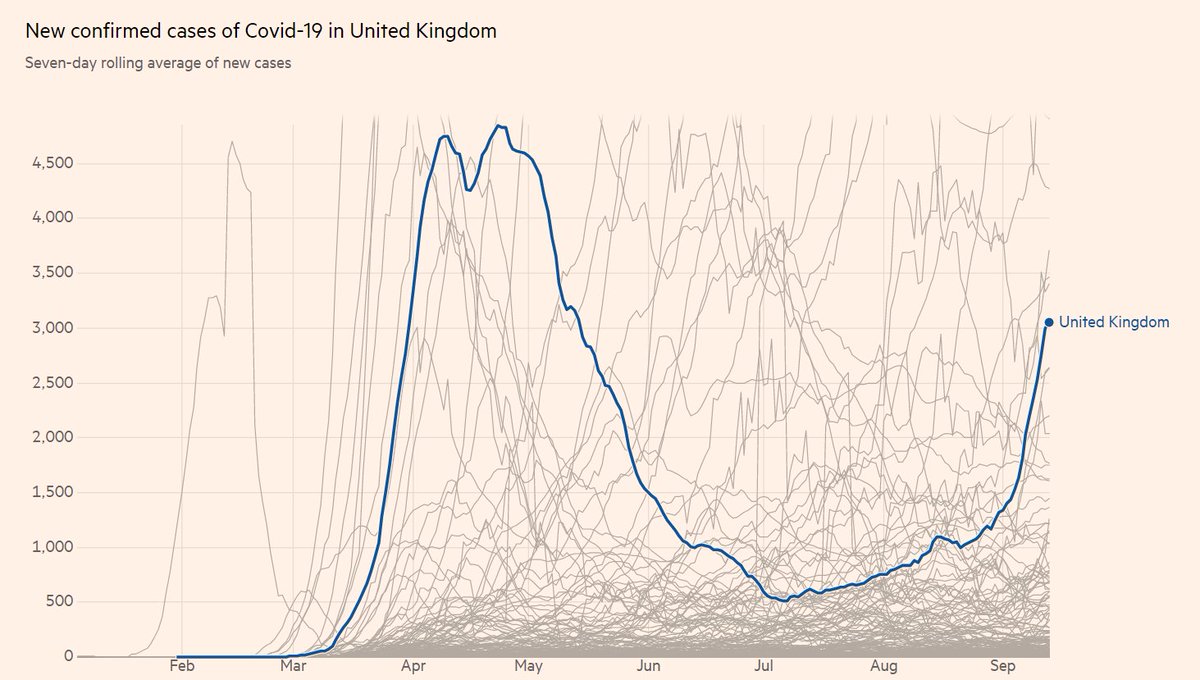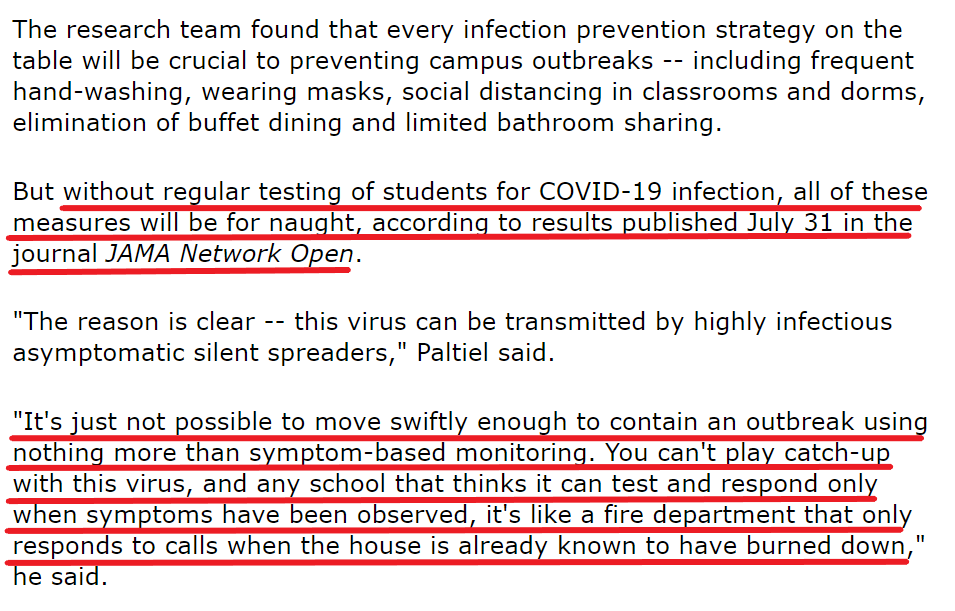
🚨UK longitudinal study of 201 individuals with #LongCovid reveals a high proportion are relatively young & without pre-existing health conditions. Also reveals "almost 70%…have impairment in one or more organs four months after initial symptoms". 1/4
medrxiv.org/content/10.110…
medrxiv.org/content/10.110…

▶️"prevalence of pre-existing conditions (obesity: 20%, hypertension: 6%; diabetes: 2%; heart disease: 4%) was low"
▶️Only 18% had been hospitalised
▶️Mean age: 44
▶️"impairment in heart (32%), lungs (33%), kidneys (12%), liver (10%), pancreas (17%), and spleen (6%)"
2/4
▶️Only 18% had been hospitalised
▶️Mean age: 44
▶️"impairment in heart (32%), lungs (33%), kidneys (12%), liver (10%), pancreas (17%), and spleen (6%)"
2/4
"In this young cohort with low prevalence of comorbidities, the extent of symptom burden and organ impairment is concerning", given the "pandemic's scale and high infection rates" among this population deemed "low risk". 3/4
Authors note blinkered UK public policy focus on fatality rates.👇 Assumption of low risk among relatively young & healthy on account of their low fatality rates is undermined by this emerging evidence of vulnerability to #LongCovid multi-organ impairment. 4/4 

PS: Given the high number of students who are becoming infected, some will suffer from #LongCovid. But it's relatively rare for those in late teens & early 20s. Instructors are in more vulnerable age groups.👇
https://twitter.com/MikeOtsuka/status/1313014554042007552
PPS: This recent publication by the National Institute for Health Research provides a systematic review of the literature on #LongCovid👇.
evidence.nihr.ac.uk/themedreview/l…
evidence.nihr.ac.uk/themedreview/l…
• • •
Missing some Tweet in this thread? You can try to
force a refresh






